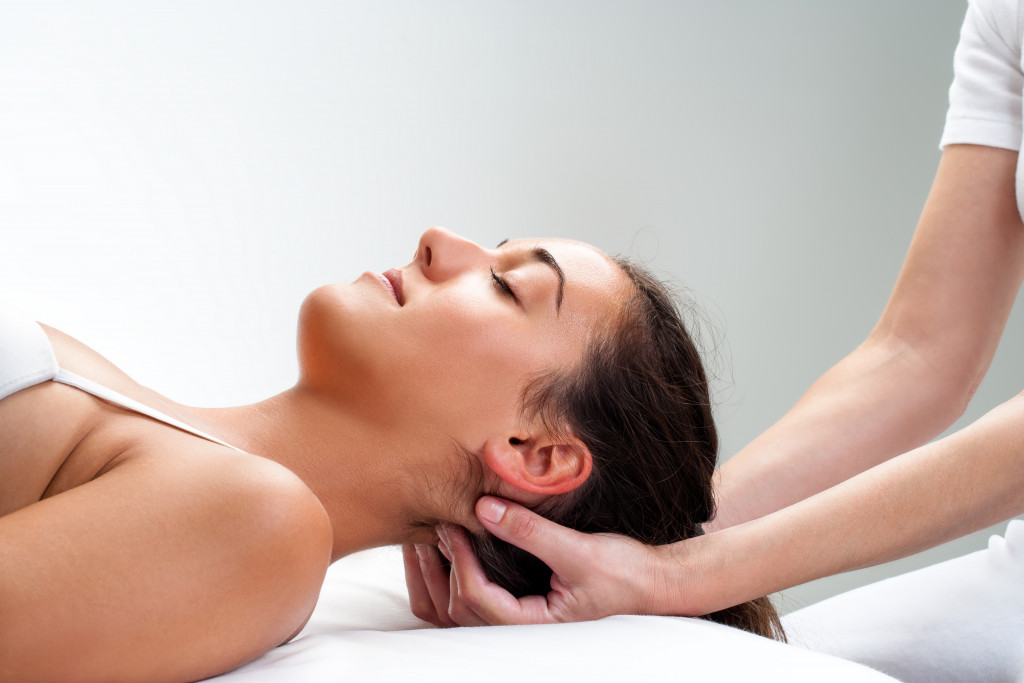Many people suffer from tension headaches, but what exactly are they? Tension headaches are the most common type of headache, and they are caused by muscle contraction and tension in the neck, head, and scalp. Tension headaches can be either intermittent or chronic. This blog post will discuss the causes of tension headaches and how to manage them.
Causes of Tension Headaches
There are many possible causes of tension headaches, including stress, anxiety, dehydration, eyestrain, muscle strain, poor posture, and jaw clenching. When you are stressed or anxious, your muscles tense up, leading to a tension headache. Dehydration can also cause tension headaches because it causes the blood vessels in your head to constrict. Eyestrain from looking at a computer screen or other digital device for long periods can also lead to tension headaches. Poor posture puts strain on your neck muscles and can cause a headache. And finally, jaw clenching can also contribute to tension headaches.
Types of Tension Headaches
Tension headaches can come in two forms: episodic or chronic. How do they differ? What are their key characteristics? Here’s a brief explanation:
Episodic tension headaches
Most people will experience episodic tension headaches at some point in their lives. They are often caused by stress, eyestrain, or neck strain and usually last 30 minutes to several hours. While they can be painful, they are not typically severe enough to interfere with daily activities. There are several treatment options available for episodic tension headaches, including over-the-counter pain relievers, massage, and relaxation techniques. In most cases, these headaches can be effectively managed with self-care. However, if they become severe or frequent, it is essential to consult a healthcare provider to rule out other causes.
Chronic tension headaches
Many people who suffer from chronic tension headaches experience symptoms daily. Symptoms of a chronic tension headache include “dull, aching head pain” and “pain that feels like a tight band around your head.” Despite their frequency, chronic tension headaches are not well-understood. However, there are some potential causes, including “muscle contraction in the neck and scalp,” “stress,” and “poor posture.” Treatment for chronic tension headaches typically focuses on alleviating symptoms. It may include over-the-counter pain medication, massage, and relaxation techniques.
Symptoms of Tension Headaches
Tension headaches usually cause a dull, aching pain on both sides of the head. The pain is often described as feeling like there is a tight band around the head. Other symptoms may include:
- tenderness in the neck and scalp muscles
- pressure behind the eyes
- sensitivity to light and sound
- fatigue or sleepiness
- difficulty concentrating or focusing
- dizziness or nausea
Management of Tension Headaches
There are many ways to manage tension headaches. Let’s take a look at them one by one:
Chiropractic care

Chiropractic care is a drug-free treatment option for tension headaches that can be very effective. Chiropractors use various techniques to align the spine and relieve nerve pressure. This can help to reduce muscle tension and pain. Chiropractors may also use massage or acupuncture to provide additional relief.
OTC painkillers
The most common OTC painkillers for tension headaches are acetaminophen, ibuprofen, and naproxen. These drugs work by reducing inflammation and pain signals in the brain. They are typically taken as needed for headaches. Still, some people may need to take them daily to prevent headaches from occurring. If OTC painkillers are ineffective in treating your tension headaches, your doctor may prescribe a stronger medication.
Massage therapy
Massage can help to relax the muscles in the head and neck, which can often become tensed up due to stress or poor posture. In addition, massage can improve circulation and help to release endorphins, which can reduce pain. While there are many different types of massage, Swedish massage is often recommended for people with tension headaches. This type of massage uses long, flowing strokes to promote relaxation. If you’re considering massage therapy for your tension headaches, be sure to consult with a qualified practitioner who has experience treating this condition.
Acupuncture
Acupuncture is an ancient Chinese practice that involves inserting thin needles into the skin at specific points on the body. This process stimulates the release of endorphins, which are natural painkillers. In addition, acupuncture helps to improve blood circulation and relax muscle tension. As a result, it can provide significant relief for those who suffer from tension headaches.
The bottom line
Tension headaches are the most common type of headache, and they can be caused by stress, anxiety, dehydration, eyestrain, muscle strain, poor posture, and jaw clenching. There are many ways to manage tension headaches, including drinking plenty of water, taking breaks from screens, practicing good posture, and avoiding jaw clenching. If you find that you are suffering from chronic tension headaches, you may want to consult with a doctor or medical professional for further treatment options.
